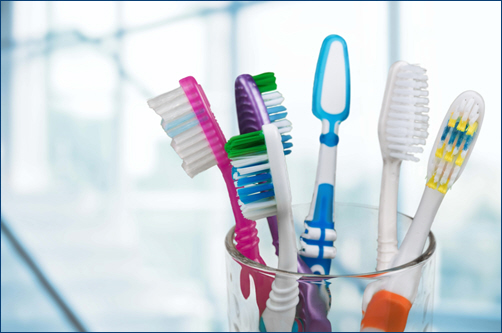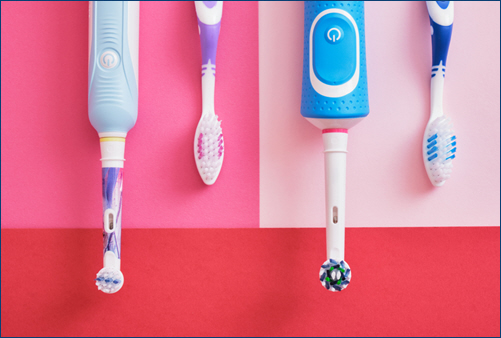Toothbrushes: Pros and Cons of Manual vs. Electric for Effective Brushing
Choosing the right toothbrush is important for maintaining excellent oral hygiene. The debate between manual and electric toothbrushes has been ongoing, with each offering distinct advantages and disadvantages. Understanding the pros and cons of each can help you make an informed decision on which toothbrush best suits your needs and lifestyle.
 Pros of a Manual Toothbrush
Pros of a Manual Toothbrush
-
- Affordability: Manual toothbrushes are generally more affordable than their electric counterparts. They are widely available and come in a variety of designs, colors, and bristle types to suit different preferences. This makes them accessible to everyone, regardless of budget.
- Control and Technique: Some people prefer the control that a manual toothbrush offers. You can easily adjust the pressure and angle of the brush to target specific areas of your mouth. This level of control can be particularly beneficial for those with sensitive gums or teeth.
- Portability and Simplicity: Manual toothbrushes are lightweight and require no batteries or charging, making them ideal for travel. Their simplicity and ease of use make them a convenient choice for maintaining oral hygiene on the go.
Cons of a Manual Toothbrush
-
- Effectiveness: Manual toothbrushes rely heavily on proper brushing technique and duration to be effective. Studies have shown that many people do not brush for the recommended two minutes, which can compromise oral hygiene.
- Plaque Removal: Electric toothbrushes are often more effective at removing plaque and reducing gingivitis compared to manual brushes. Users may need to focus more on their brushing technique to achieve similar results with a manual toothbrush.
Pros of an Electric Toothbrush
-
- Efficiency: Electric toothbrushes provide consistent, high-frequency brushing motions that can effectively remove plaque and reduce gingivitis. Many models come with built-in timers to ensure users brush for the recommended two minutes.
- Ease of Use: Electric toothbrushes are particularly beneficial for individuals with limited mobility, such as those with arthritis or other conditions that affect manual dexterity. The brush does most of the work, making it easier to clean teeth thoroughly.
- Advanced Features: Many electric toothbrushes come with additional features such as pressure sensors, multiple brushing modes, and Bluetooth connectivity for personalized feedback. These features can enhance the brushing experience and encourage better oral hygiene habits.
Cons of an Electric Toothbrush
-
- Cost: Electric toothbrushes are generally more expensive than manual brushes. They also require periodic replacement of brush heads and batteries, adding to the overall cost.
- Bulk and Maintenance: Electric toothbrushes are bulkier and require charging, which can be inconvenient for travel. They also require more maintenance to ensure optimal performance.
Both manual and electric brushes have their pros and cons, and the best choice ultimately depends on individual preferences and needs. Manual toothbrushes offer affordability and control, while electric toothbrushes provide efficiency and ease of use. Regardless of the type of toothbrush you choose, maintaining proper brushing technique and consistency in your home care dental habits is key to effective oral hygiene and a healthy smile.



